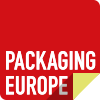ABOUT THE AWARDS
The global competition for sustainable packaging innovation
Packaging waste, the climate crisis and other environmental challenges demand an urgent and joined up response from consumer goods and the wider packaging value chain. Challenging us to take a rigorous and holistic view, the Sustainability Awards sets the agenda on best practice, turns the spotlight on the most important areas of R&D, and helps separate greenwash from the innovations that make a genuine difference.
Since its inception, the initiative has not only exponentially grown, but continually evolved its criteria and categories in order to better reflect the innovation landscape and the sustainability demands that industry needs to meet. However, its core principles are constant: the Sustainability Awards is free to enter, and open to all kinds of organisations throughout the packaging value chain and beyond – from start-ups to global brands and universities to manufacturers. It emphasizes the importance of holistic and substantive impacts, and watching out for unintended consequences. Its rules and processes are transparent and, though it is organized by Packaging Europe, the Sustainability Awards is independently judged by an diverse, international jury of experts, with zero input from the organizers.
2025 Finalists
Best Practice
- Coveris – ReCover Paper recycling facility
- Sonoco – Smart, recyclable food cans for FareShare charity donations
- Trayak – EcoImpact Sustainability Intelligence platform for data analytics
- ICIS – ICIS Pyrolysis Oil Pricing Index
Climate
- DS Smith and Krones – Fibre-based Lift Up shrink-wrap alternative and LitePac Top for bottle multipacks
- Sonoco – Ecopeel three-piece can
- Ardagh Glass Packaging – Hydrogen electrolyzer for melting glass
- Ambipar – Sustainable Biocapsules Project, reusing pharma packaging waste for reforestation
- Flexpenser – Flexpenser one-way valve/pump
Driving the Circular Economy
- Glacier and 100+ Accelerator – Glacier Recycling AI for automated recovery and real-time data
- DHL Express – Reusable Pallet Wrap
- Procter & Gamble – VersoVita solvent-based dissolution recycling technology
- RAWS – RAWS plastic degradation technology
E-commerce
- Henkel – Technomelt E-COM G5 Eco Cool low-temperature hot melt
- Xampla and Just Eat Takeaway – Plastic-free, Morro-coated food-to-go box
- Guangzhou Procter & Gamble – Paper pulp spherical packaging box
- Procter & Gamble – Versafiller paper-based honeycomb structure
Machinery
- CMC Packaging Automation – CMC Super Vertical 3D Vertical Bagger and Auto-Packer
- Hotel Emporium – LiquiFill bath liquid refill system
- Ranpak – Cut’it!™ EVO Multi-Lid automated height reduction and box closing machine
- SIPA – XFORM RENEW direct flake-to-preform technology
- Voidless – Voidless P2 automated packaging system for right-sized boxes
Recyclable Packaging
- Sharpak – SharpTek mono-PET tray for berries
- COPAR Smart Packaging – Flow wrap for sausages, made from wheat straw and HyperBarrier paper
- Blue Ocean Closures – Fiber-based closure for nutraceutical supplements
- Koehler Paper – Koehler NexPlus Advanced barrier paper for Wynn Petfood primary packaging
- Mondelēz International – MonoPaper outer packaging for Veritable Petit Beurre de LU
Renewable Materials
- Zafree Papers and 100+ Accelerator – Tree-free, unbleached pulp and kraft liner
- Graphic Packaging International – PaperSeal™ Shape paperboard tray for Pilgrim’s Europe and Sainsbury’ss
- UPM Specialty Papers, Orkla Suomi, and Walki Group – Paper packaging for Panda Milk chocolate
- Pack2Earth – Low-CO2, home-compostable biomaterials made from plant matter and minerals
- Mondi Group – Ad/Vantage StretchWrap for pallet wrapping
Climate
(Pre-Commercialized)
- Paramount Planet Product – Biodegradable nano-cellulose straws
- Paramount Planet Product – Biodegradable nano-cellulose flat sheets
- Avery Dennison – Vidre+ smart label for fresh produce
- BioTip – Eye D sensors for real-time food quality monitoring
Driving the Circular Economy
(Pre-Commercialized)
- Sonoco – HORIZON lightweight metal overcap
- BOTTLESS – Airless Pak refillable airless packaging system
- Beontag – Beontag Carrier eWave industrial-grade UHF label
- Gemini Corporation – Gemcorp Recycling’s upcycled multi-layered plastic pellets
- Klingenberg – Nomadbox reusable shipping carton
Recyclable Packaging
(Pre-Commercialized)
- Papacks – Moulded fibre, cellulose-based Fiber-Bottle
- Unilever – High-barrier, recyclable paper pack for Knorr Soups
- Veritiv – Helicot Paper Tube
- Solenis – TopScreen TC744 water-based barrier coating for cupstock
- Coexpan and Emsur – Resealable mono-PET food tray
Renewables
(Pre-Commercialized)
- HUID – HUID Pyber, a fibrous packaging material derived from onion waste
- Shenzhen JF Bio Products – BALK biobased, pressure-sensitive hot melt adhesive
- Tampere University of Applied Sciences – Coffee-based biopolymer inks
- Ecohelix – Ecohelix WOODMER Seal biopolymer heat seal coating
- NantBioRenewables – Compostable protein tray containing ocean calcium

